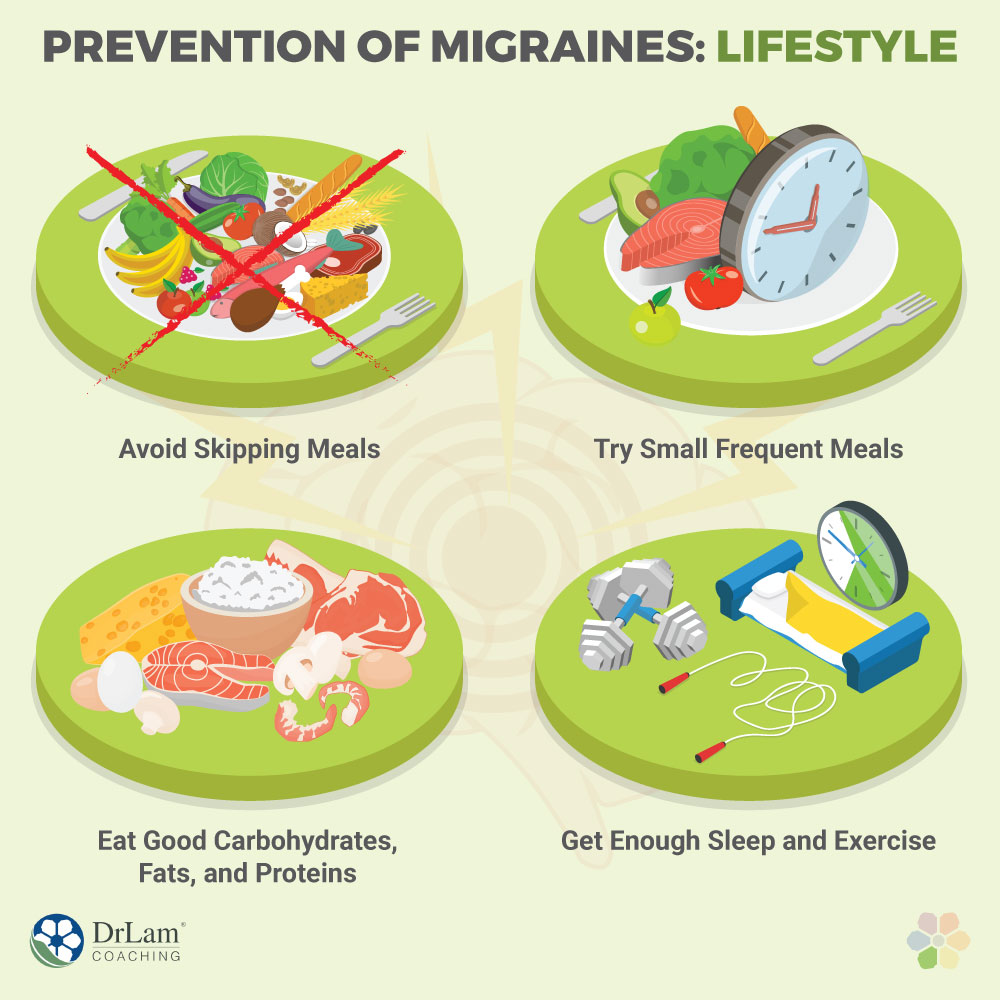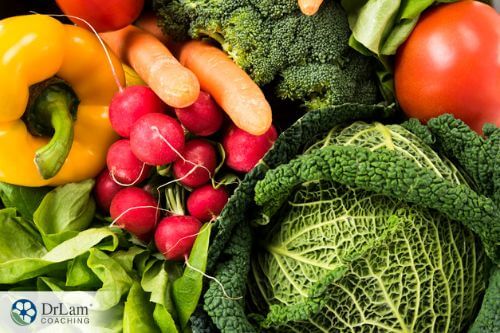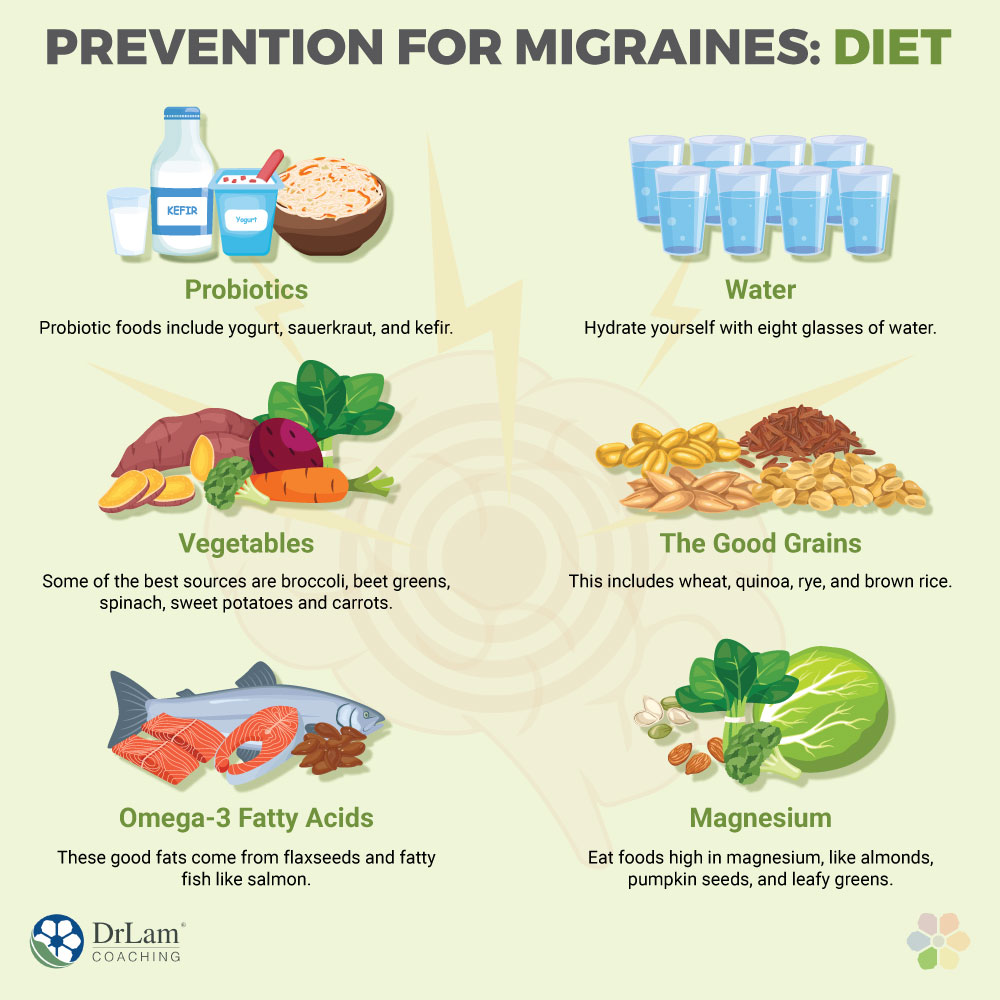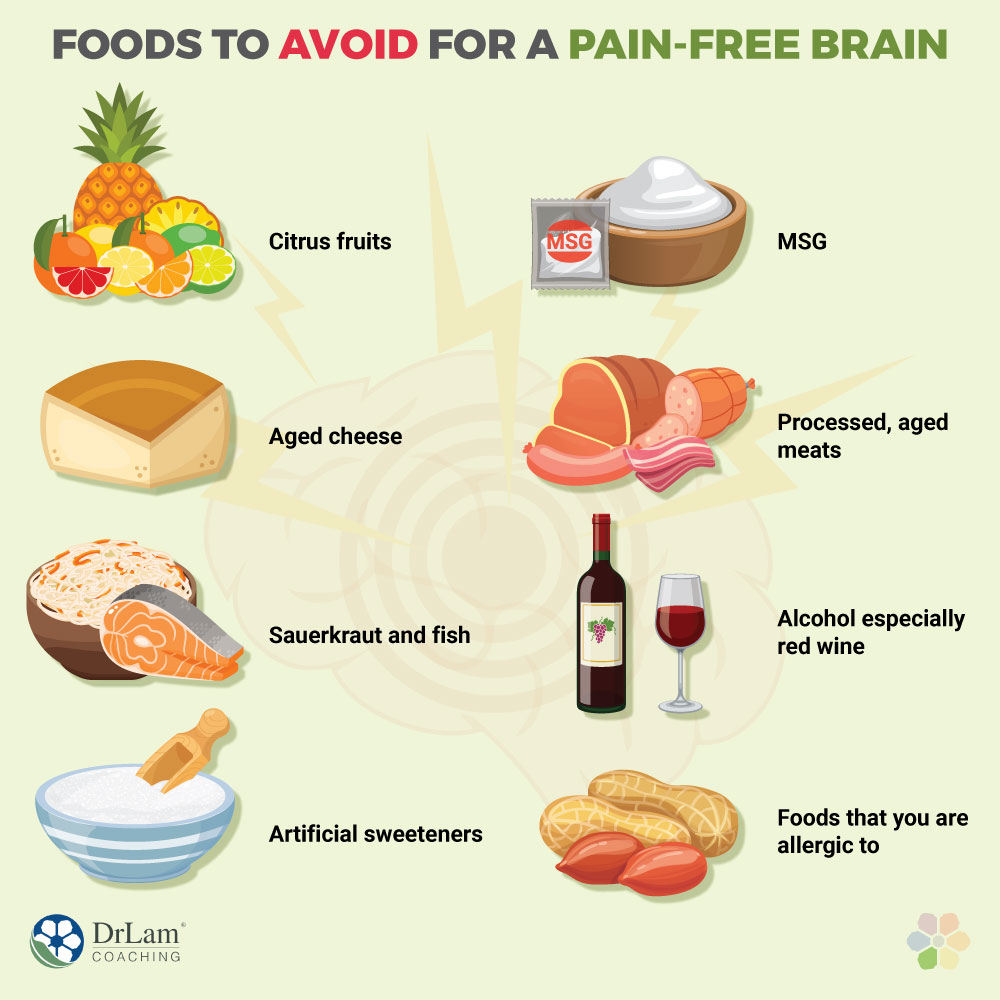Migraines can take over your life, and the best way to stop them is to prevent them in the first place. What you eat can be a major trigger for the pain. While there is not a specific diet for migraines,there are several foods you can try adding to or avoiding in your diet to try to prevent migraines.
 About 16% of American adults have severe headaches. Moreover, 21% of women suffer from migraines, while only 11% of men experience them. It is a severe health issue that affects daily living.
About 16% of American adults have severe headaches. Moreover, 21% of women suffer from migraines, while only 11% of men experience them. It is a severe health issue that affects daily living.
Studies suggest eating patterns can help ease the pain. For example, Arab et al. (2021) found that the Mediterranean diet lessens migraines' duration, frequency, and severity. Another study by Bakirhan et al. (2021) recommends the Dietary Approaches to Stop Hypertension (DASH) diet. And another review by Di Lorenzo et al. (2021) concluded the keto diet may be beneficial for different kinds of headaches.
One common food in these three diets is fish. It contains high levels of omega-3 and omega-6 fatty acids. Other health experts, though, say there is no perfect diet. Instead, they suggest avoiding foods that can trigger migraines, along with other causes as well.
Migraines can have several underlying causes. Everyday stress can be a trigger. Moreover, a diet for migraines is vital as your food can lead to migraines. Other common factors are hormones and lifestyle.

It's not just what you eat. How you eat counts too. For starters, you should avoid skipping meals. Instead, try small frequent meals to have enough fuel for energy. Moreover, eat good carbohydrates, fats, and proteins so you won’t feel hungry. Finally, you should also get enough sleep and exercise on top of your food choices. These healthy habits can also help maintain your weight.
Some foods work best to prevent migraines. But ensure you don’t have sensitivities to any of these foods. For big dietary changes, it is best to consult a health provider first.
Gut-friendly foods keep the balance of bacteria in the intestines. In a large migraine study, migraineurs received probiotics or a placebo every day for 10 weeks. Those who took probiotics suffered fewer migraine attacks and lower intensity by 30-40% than the placebo group. Probiotic foods include yogurt, sauerkraut, and kefir.
 Magnesium contained in green leafy vegetables helps reduce migraine attacks. Some of the best sources are broccoli, beet greens, and spinach. Moreover, sweet potatoes and carrots containing beta-carotene are also good. A British Medical Journal Case Reports study supported these foods for preventing migraines.
Magnesium contained in green leafy vegetables helps reduce migraine attacks. Some of the best sources are broccoli, beet greens, and spinach. Moreover, sweet potatoes and carrots containing beta-carotene are also good. A British Medical Journal Case Reports study supported these foods for preventing migraines.
Omega-3 fatty acids are recommended by the Dietary Guidelines for Americans. These good fats come from flaxseeds and fatty fish like salmon. In contrast, omega-6 can either trigger or worsen headaches, based on a study. The key is to balance omega-3 and omega-6 to stop migraine attacks.
Lack of water can result in migraines. Hydrate yourself with eight glasses of water. Increase your intake if the weather is hot or when you sweat more.
This includes wheat, quinoa, rye, and brown rice. These foods are rich in fiber and complex carbohydrates. According to the Association of Migraine Disorders, these grains are good for migraines. In addition, they contain vitamins like calcium and magnesium that stop migraines. However, some grains contain gluten. This can have the opposite effect on people with gluten intolerance.
Magnesium is a great supplement to help prevent headaches and migraines. For dosing, around 375-500 mg per day is recommended. A too-high dose can cause diarrhea. Additionally, foods high in magnesium can help migraines. You can eat foods high in magnesium, like almonds, pumpkin seeds, and leafy greens. It works for tension and cluster headaches, too. Further, people suffering from lupus may benefit from a

These foods stir up headaches, based on several studies. However, people react differently. The foods on the list can affect some but not others. Keeping a diet for migraines journal can help you identify which foods may cause your migraines. Here are some foods that may act as triggers:

Caffeine can go both ways. Some over-the-counter medicines contain caffeine to stop headaches. And if you are used to drinking coffee, then caffeine withdrawal can also be a cause of headaches. One study found one or two cups of coffee may protect against headaches.
 However, studies found that drinking more than three cups of coffee made you more likely to get a migraine. This is based on a study in the American Journal of Medicine. This number is less if you aren't used to caffeine. So drink in moderation.
However, studies found that drinking more than three cups of coffee made you more likely to get a migraine. This is based on a study in the American Journal of Medicine. This number is less if you aren't used to caffeine. So drink in moderation.
In general, you may be less prone to headaches if you drink less caffeine. However, if you think that it plays a role in your headaches, cut down on caffeine gradually, dropping down 20% every week or so. Cutting out caffeine suddenly can also lead to headaches.
Certain foods cause inflammation that may result in headaches. An anti-inflammatory diet may, in turn, reduce the risk of developing headaches. Most of the foods mentioned earlier help reduce inflammation. Other foods include berries, ginger, nuts, and extra virgin oil.
The “gut-brain axis" plays a role in migraines. This axis is a two-way talk between the intestines and the brain.
Your body contains millions of organisms called the microbiome, many of which live in your gut. A healthy microbiome means your gut is healthy, too. Changes in your microbiome can lead to gut issues. For example, a leaky gut allows toxins from the intestines to travel to your bloodstream. As a result, your immune system launches an attack causing inflammation. Studies show that inflammation causes brain problems. This includes anxiety and depression.
Additionally, a review by Arzani et al. (2020) found 45% of migraineurs had Helicobacter pylori harmful bacteria in their guts. At the same time, people with irritable bowel syndrome (IBS) had a 40 % to 80% risk for migraines. Migraines can also be experienced by about 21% to 28% of people with celiac disease (CD). H. pylori, IBS, and CD cause inflammation and disrupt the gut microbiome. Headaches can be the result.
The microbiome is a component of the Neuroaffect Circuit. This circuit, along with five other circuits, composes the NeuroEndoMetablic Stress Response. These circuits help you overcome stress. The key is to keep your microbiome happy. Thus, eating the right diet for migraines helps maintain a healthy microbiome and Neuroaffect Circuit.
Eating a diet for migraines means avoiding certain trigger foods and eating more foods and nutrients that can help support your body. Eat foods rich in probiotics, magnesium, and omega-3 fatty acids. It helps if you drink plenty of water. On the other hand, you may need to avoid alcohol and citrus fruits. Stay away from processed meats, MSG, and aged cheese.
If your migraines persist, talk to a health provider for further assessment. It's possible that you have food sensitivities or gluten intolerance you are unaware of. Keeping a journal of what you eat and your migraine symptoms can help you determine trigger foods.
If you suffer from frequent migraines and need help determining possible causes and how to make diet changes that may help, call the Dr. Lam Coaching team at +1 (626) 571-1234 for a free initial consultation. Or you can send us a private message through our Ask The Doctor System.
The diet for migraines include probiotics, vegetables, and foods with omega-3 fatty acids, and magnesium. It excludes triggers like MSG, processed meats, aged cheese, citrus, fruits, and alcohol. This diet is vital for a healthy gut and brain.
